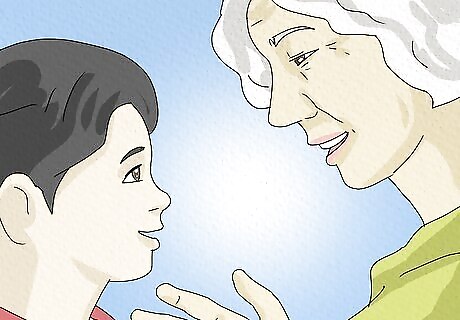
views
Can parents withhold children from grandparents legally?

Yes, grandparents typically don't have automatic visitation rights. Most countries and states do not give grandparents the legal right to see their grandchildren. While there's often a societal expectation that grandparents will be allowed to see their grandchild, this typically isn't guaranteed under the law. The exception to this is if the grandparents have custody or visitation rights granted by a court.
What options do grandparents have?

Consider supervised visits as a middle ground. “Supervised visit” is a legal term, but there’s no reason you can’t create a kind of supervised visit of your own if the parents are open to it. Ask the parents if they’d be willing to let you spend time with the child if they supervise it. Even if it’s just a small period of time, it could open the door to longer visits.

Hire a mediator to get a neutral third party’s help. If a neutral third party might help, hire a professional mediator to sit down with everyone and talk it all out. It might feel a little awkward and formal, but sometimes you need a neutral party to help cooler heads prevail. If the parents' concern is too personal for them to deal with you directly, a mediator may be able to help smooth things over.

Try family counseling if everyone wants things to improve. If everyone is open to it, going to counseling can help everybody work through whatever the issue is in an open and caring environment. This can help heal old wounds, give everyone the skills they need to handle anger in the future, and provide an open space for everyone to get what’s bothering them off of their chest. As hard as it may be, you can’t force the parents to share your grandchildren with you. The best you can do is try to appease them and hope that you can resolve whatever issue they have with you.
Common Issues that Lead to Withholding

The parents are holding on to a grudge. If your child thinks you raised them wrong, the two of you have family friction, or there’s some major disagreement driving a wedge between you, they may withhold your grandchildren as a form of punishment. If you have a good relationship with your child-in-law and there’s another grandparent on your side, having those two talk things out for you and your child may possibly help.

The parents don’t trust the grandparents to watch the child. Some parents are reluctant to have other people watch their children, whether it's because of anxiety or something that happened in the past. If the parents have concerns about you watching your grandchildren, that could be one possible reason why they're withholding them.

The grandparents live too far away to make a relationship viable. Sometimes, parents withhold grandchildren simply because not withholding them is difficult on a practical level. Luckily, there are plenty of workarounds here! You could video chat with your grandchildren regularly, or try to meet halfway between your homes twice a year or so. Try to work with the parents to find a solution.
Reasons Why Withholding Grandchildren Can Be a Problem

The child and grandparent relationship is important for the child. Children absorb all kinds of information from the people who supervise and teach them. While the parent’s nurturing behavior is an important part of what informs a child’s personality and development, time with a grandparent can be uniquely influential for a child. Studies have proven that children who spend time with their grandparents grow up to be more in tune with their emotions.

The grandparent can help the child learn and grow in a unique way. Grandparents were raised in a different generation and have a distinct set of experiences that can benefit a child in ways it’s hard for a parent to understand. Evidence suggests that exposure to both a parent and a grandparent are deeply helpful to a child’s development—not just early in life, but later on when they’ve grown into adults. It’s possible that getting access to two different generations will give a child a greater appreciation for multiple perspectives later on in life.

Grandparents typically deserve to spend time with their lineage. A grandparent spent decades raising children and has had the blessing of watching them develop into a parent of their own. This is a special time in a grandparent’s life, and spending time with their grandchild represents a unique opportunity to see what the future of the family will be.

There's not a lot of time for children and grandparents to bond. Grandparents don’t live forever. Children aren’t young forever. As a consequence of these two facts, this is a narrow opportunity for both the grandparent and the grandchild to get to know one another. Even if a parent isn’t especially fond of a grandparent, it’s important to remember that a grandchild will carry their experiences with their grandparents throughout their entire life.


















Comments
0 comment